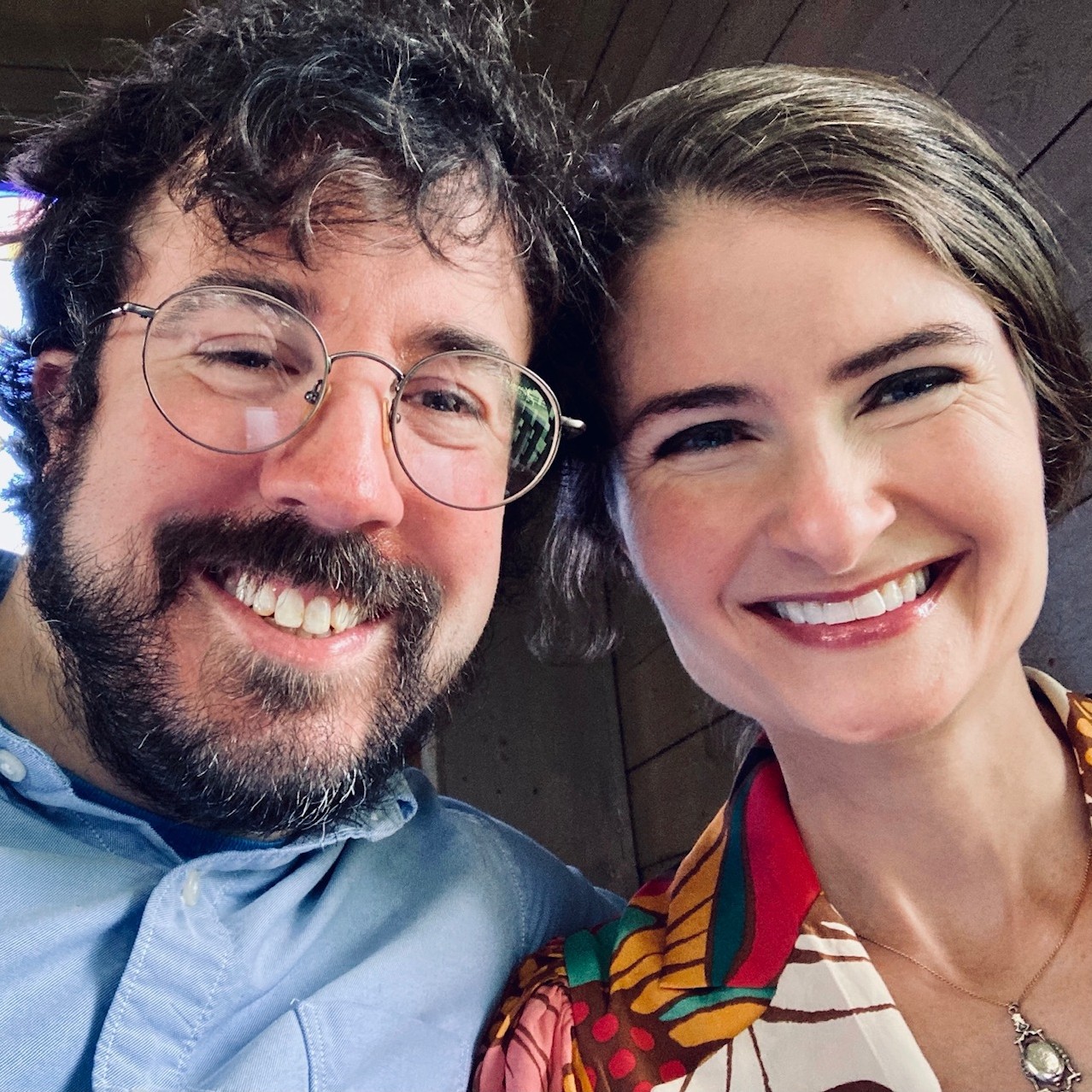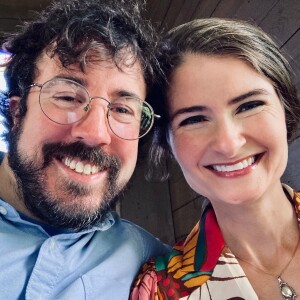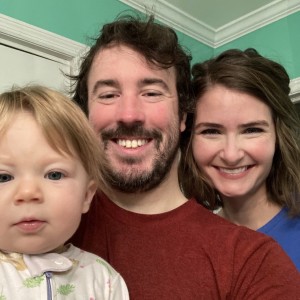
1.8K
Downloads
33
Episodes
Husband and wife Adam and Whitney Diehl team up to discuss a classic work of literature each Summer. Season 1 covers William Faulkner’s 1936 novel Absalom, Absalom!. Season 2 covers Flannery O’Connor’s 1965 short story collection Everything That Rises Must Converge. Season 3 covers Fyodor Dostoevsky’s 1878 doorstop The Brothers Karamazov. Season 4 covers Virginia Woolf’s 1925 day-in-the-life novel Mrs. Dalloway.
Episodes

Wednesday Jul 08, 2020
Absalom, Absalom! Episode 0--Why Did We Pick This Novel?
Wednesday Jul 08, 2020
Wednesday Jul 08, 2020
In this introductory episode of Summer Reading with the Diehls Season 1, English teachers Adam Diehl and his wife Whitney discuss why they chose to begin the series with a discussion of William Faulkner's 1936 novel Absalom, Absalom!, which overlaps with his classic 1929 novel The Sound and the Fury through the father-son-college roommate trio Jason Compson, Quentin Compson, and Shreve McCannon. They give a detailed overview of the characters, the plot, the themes, and the design.
They also tell the story of how this novel helped them find each other at the University of Georgia!

Wednesday Jul 08, 2020
Absalom, Absalom! Episode 1--Rosa Coldfield: Narrator, Heroine, Victim, Fury?
Wednesday Jul 08, 2020
Wednesday Jul 08, 2020
In this first episode proper of Summer Reading with the Diehls Season 1, Adam Diehl and his wife Whitney discuss the first main character of William Faulkner's 1936 novel Absalom, Absalom!: Rosa Coldfield. They analyze her place and purpose in the novel, her power as a narrator (and possibly as a heroine), and her predicament in regard to Thomas Sutpen (a.k.a. "demon"). Is she a persuasive voice in Quentin Compson's life?

Thursday Jul 09, 2020
Absalom, Abaslom! Episode 2—Thomas Sutpen: Designer, Father, Warrior, King?
Thursday Jul 09, 2020
Thursday Jul 09, 2020
In this second episode proper of Summer Reading with the Diehls Season 1, Adam Diehl and his wife Whitney discuss the man whom Faulkner called the protagonist of his 1936 novel Absalom, Absalom!: Thomas Sutpen. They consider him as a name, as a person, and as a design. Does this novel give readers an accurate portrait of Thomas Sutpen?
In addition to Sutpen and his vision, they also cover a central word for the novel: innocence.

Friday Jul 10, 2020
Friday Jul 10, 2020
In this third episode proper of Summer Reading with the Diehls Season 1, Adam Diehl and his wife Whitney discuss the first dynamic duo of William Faulkner’s 1936 novel Absalom, Absalom!: Charles Bon & Henry Sutpen. According to Adam, the two characters make up “a world-class bromance.” Why, then, would Henry shoot Charles at the front gates of Sutpen’s Hundred?
This episode also considers the novel’s sub-genre: Murder-Mystery?

Saturday Jul 11, 2020
Saturday Jul 11, 2020
In this fourth episode proper of Summer Reading with the Diehls Season 1, Adam Diehl and his wife Whitney discuss the second dynamic duo of William Faulkner’s 1936 novel Absalom, Absalom!: Quentin Compson and Shreve McCannon. Are these two narrators merely LARPing the Civil War through Henry Sutpen and Charles Bon (respectively)? Or are they the True Detective(s) that will solve the mysteries of the Sutpen family?
This episode also considers Shreve’s line of questioning to Quentin: “Tell me about the South. What's it like there. What do they do there. Why do they live there. Why do they live at all” (Faulkner 142).

Sunday Jul 12, 2020
Absalom, Abaslom! Episode 5—What Kind of a Title Is Absalom, Absalom!?!
Sunday Jul 12, 2020
Sunday Jul 12, 2020
In this fifth episode proper of Summer Reading with the Diehls Season 1, Adam Diehl and his wife Whitney discuss the original and final titles of William Faulkner’s 1936 novel Absalom, Absalom!. What does an Old Testament story have to do with Thomas Sutpen & co.? How does the Civil War parallel the story of David, Absalom, Amnon, and Tamar? For a title so brief and mysterious, it is surprisingly fitting for the content (and design!) of the novel.
This episode also considers this question: could this have been the same novel if Faulkner had stuck with his original title: The Dark House?

Tuesday Jul 14, 2020
Tuesday Jul 14, 2020
In this sixth episode proper of Summer Reading with the Diehls Season 1, Adam Diehl and his wife Whitney take a break from the content and themes of the novel and discuss the style of William Faulkner’s 1936 novel Absalom, Absalom!. Do the words, sentences, and designs of this novel combine to make realistic, impressionistic, or abstract portraits of the characters? Would this story "hit different" if the prose was more straight-forward and simplified?
This episode also considers the importance of short sentences (there aren’t that many of them!) in the book, especially in regard to when the different characters use them.

Tuesday Jul 14, 2020
Tuesday Jul 14, 2020
In this seventh (and final) episode proper of Summer Reading with the Diehls Season 1, Adam Diehl and his wife Whitney discuss the lasting value—and place in American literary history— of William Faulkner’s 1936 novel Absalom, Absalom!. Is this book in the running for the mythical Great American Novel? Why or why not? As Whitney said in the previous episode, Absalom, Absalom! is a “meditation on Time, Power, Survival”; this final podcast of the season analyzes and synthesizes this estimation.
Also, after considering the length, width, density, mass, and volume, they attempt to answer the question: to what height does this novel soar?

Wednesday Aug 04, 2021
EVERYTHING THAT RISES MUST CONVERGE Episode Alpha
Wednesday Aug 04, 2021
Wednesday Aug 04, 2021
Married English teachers Adam and Whitney Diehl return with a new season, where they discuss why they picked Flannery O'Connor's short story collection EVERYTHING THAT RISES MUST CONVERGE.

Wednesday Aug 04, 2021
EVERYTHING THAT RISES MUST CONVERGE Episode 1
Wednesday Aug 04, 2021
Wednesday Aug 04, 2021
On this episode of Summer Reading with the Diehls, English teacher spouses Adam & Whitney Diehl discuss "The Comforts of Home" and the title story "Everything That Rises Must Converge" from Flannery O'Connor's second and final short story collection.
